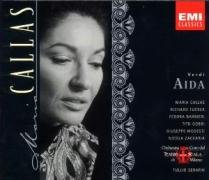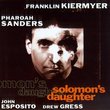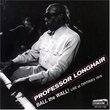| All Artists: Tito Gobbi, Giuseppe Verdi, Tullio Serafin, Fedora Barbieri, La Scala Theater Orchestra, Maria Callas, Franco Ricciardi, Richard Tucker, Elvira Galassi Title: Verdi: Aida (complete opera) with Maria Callas, Richard Tucker, Tito Gobbi, Tullio Serafin, Chorus & Orchestra of La Scala, Milan Members Wishing: 0 Total Copies: 0 Label: EMI Classics Release Date: 8/19/1997 Genre: Classical Styles: Opera & Classical Vocal, Historical Periods, Modern, 20th, & 21st Century Number of Discs: 2 SwapaCD Credits: 2 UPCs: 724355631626, 724355631657 |
Search - Tito Gobbi, Giuseppe Verdi, Tullio Serafin :: Verdi: Aida (complete opera) with Maria Callas, Richard Tucker, Tito Gobbi, Tullio Serafin, Chorus & Orchestra of La Scala, Milan
 | Tito Gobbi, Giuseppe Verdi, Tullio Serafin Verdi: Aida (complete opera) with Maria Callas, Richard Tucker, Tito Gobbi, Tullio Serafin, Chorus & Orchestra of La Scala, Milan Genre: Classical
Aida was a role Callas sang early in her career. Perhaps she dropped it early because others sang it either as well or with more interest; perhaps it reflected her desire to sing less standard repertoire. Regardless, s... more » |
Larger Image |
CD DetailsSynopsis
Amazon.com Aida was a role Callas sang early in her career. Perhaps she dropped it early because others sang it either as well or with more interest; perhaps it reflected her desire to sing less standard repertoire. Regardless, she of course makes her mark on the role, and this recording is quite good, if not exactly the standard by which other recordings are measured (which might be true of Callas's Lucia, Norma, Violetta, and Tosca). To be sure, the voice is a bit squally on exposed high notes, but Callas offers us a very complex, worthy Aida nonetheless. She's proud--a princess by birth and a slave only by circumstance--and loyal and loving to both her father and her lover. It's a portrait of a character truly torn. Her duets with Barbierei as an exciting, cruel Amneris and Gobbi as her half-crazed father are high points, and if Richard Tucker is not the most engaging Radames, he's certainly rock-steady. This is a good show, well worth your attention. --Robert Levine Similar CDs
|
CD ReviewsA COMPELLING AND DRAMATIC 'AIDA" 06/17/1999 (4 out of 5 stars) "Maria Callas wasn't a natural Aida, as were sopranos like Zinka Milanov or Leontyne Price, whose perfectly placed Verdian voices were ideal for this role (their respective recordings of this opera are, of course, exemplary). But Callas had such a unique and compelling vocal personality, that she brought to Aida a quality that can be heard from no other soprano. Her voice on this recording, while not as firm and secure as it still could be in 1955 (the year of this recording), was capable of some amazing things.Her singing in the Act I trio is powerful and authorative; her "Ritorna Vincitor" has the thrust of steel and iron. Her "O Patria Mia" sounds beautiful until she goes for the climatic high C, which wobbles under pressure. This leads her right into the father-daughter duet with Tito Gobbi, in which together both singers produce a stretch of singing which bursts with pathos and drama. I've never heard this scene done better by anyone. The Callas-Gobbi combination (most notable in "Tosca") works its usual miracles here.Richard Tucker's Rhademes is unsubtle, a little staid, but certainly well sung. Fedora Barbieri's powerful and booming mezzo is wonderfully appropriate for Amneris, and she is a good foil for Callas in the Aida-Amneris interview scene.Tullio Serafin conducts the La Scala orchestra and chorus with authority and a good sense of drama, especially in the Nile Scene as well as the Judgement Scene. While I wouldn't make this my only "Aida" recording, I certainly wouldn't want to be without it." Intelligence in Verdi's Score The Cultural Observer | 10/13/2005 (5 out of 5 stars) "For quite some time, I had tried to avoid this recording of Aida, mainly because I knew that Callas had sung the role too late in the studio. I usually went for her Mexico performance, and then recently I decided to give this a try. The truth is, Callas' voice in the mid 50's wasn't the same hurricane force that took the world by surprise in the earlier stages of her career. But you know what? I think, of all the Aidas published on record, only this and Caballe's recording with Domingo and Muti cut it for the greatest Aidas. I mainly think this because above all the other artists who have sung the role of the princess, Maria Callas and Caballe are the only ones who can explore the sensitivities of the role. Every emotional inflection is bared out in this recording. You can hear Aida's agony...and this certainly is without a doubt a must for any Verdian soprano who sings the role. I can't stand Leontyne Price's divaesque handling of the role, nor can I bear Tebaldi's detached singing. Callas' Ritorna Vincitor is almost a recitative, even in the most lyric parts. Her duets with Barbieri, whom I think is a supreme Amneris, are certainly one of the highlights of this set. To further stipulate this, Gobbi and Callas make the most excellent Amonasro and Aida couple. Richard Tucker, albeit the weight of his voice, gives a complete Radames. It isn't in the rank of del Monaco, Corelli, or Domingo, but I certainly prefer it over Vickers! Serafin conducts this opera well and sensitively from beginning to end, and gives it a most Italianate treatment absent from Solti's or Karajan's recording. Definitely a winner!" "Aida" as drama set to music L. E. Cantrell | Vancouver, British Columbia Canada | 03/12/2007 (5 out of 5 stars) "SOURCE: Studio production made on August 10-12, 16-20 and 23-24, 1955 at Teatro alla Scala, Milan and issued on the Columbia label.
SOUND: Pretty good mid-1950s studio recording, although probably not of leading edge quality even on the day it was laid down. Nevertheless, this "Aida" sounds better than many of Callas' complete opera recordings, some of which sound just plain awful. By digital standards, the recorded range is relatively narrow and a bit boxy, but the voices are nicely captured and given prominence over the orchestra, as was the fashion of the time. Overall, I think the sound should be satisfactory to all but narrow-minded audiophiles. CAST: Aida, an Ethiopian slave to Amneris - Maria Callas (soprano); Radames, a captain of the royal guard destined for higher things - Richard Tucker (tenor); Amneris, the daughter of Pharaoh - Fedora Barbieri (mezzo-soprano); Amonasro, the warrior King of Ethiopia - Tito Gobbi (baritone); Ramfis, the High Priest - Giuseppe Modesti (bass); King of Egypt - Nicola Zaccaria (bass); a messenger - Franco Ricciardi (tenor); a priestess - Elvira Galassi (soprano). CONDUCTOR: Tullio Serafin with the Orchestra and Chorus of La Scala in Milan. COMMENTARY: Verdi's "Aida" can be approached as an intimate drama with elements of spectacle or as a spectacle with intimate moments. While Serafin gives nice play to the circus to be found in the middle of the opera, his real attention is directed toward the words, thoughts and interactions of the slave, the young general, the princess and the warrior-king. In spectacle-oriented performances, such as those led by Solti and Mehta, Ramphis, the High Priest, is a leading figure in the drama, for he embodies the official position of the Egyptian state so spectacularly on display. Here, he is a secondary character, not so much because Giuseppe Modesti was a lesser singer than Callas, Tucker, Barbieri or Gobbi, but because Ramphis is exterior to the dramatic core of the opera as Serafin--and indeed the old Italian tradition, saw it. Tullio Serafin embodied the mainline of Italian tradition in performing operas. For those accustomed to the current international style, Serafin can be a shock. His manner may even seem deplorable. He did not care a fig about the present day fetish of textual completeness. His concern was with dramatic effectiveness. He was not a living metronome. His tempi are amazingly flexible (his critics would say downright loose) by current standards, but always with a dramatic purpose. He was not a drill master. He accepted a little raggedness in the chorus or less than perfect intonation from the orchestra in pursuit of phrasings and emphases that prove to be profoundly right, time after time. Maria Callas was not a naturally-born Aida. For the sheer, glorious, creamy tone many fans expect from an Aida, you must go to Zinka Milanov, Renata Tebaldi or even Leontyne Price. Callas sang Aida in the early part of her career. A pirate recording from Mexico City captures her in full whoop-ti-do mode with all the long-held notes and flights to stratospheric heights that her fans adored, but at which Verdi would have snarled. She made her debut at La Scala as Aida (with no great success), filling in for an ailing Tebaldi. She stopped singing the role on stage in 1953. When this recording was made in 1955, she was no longer so brilliant a songbird, but she was a vastly superior singing actress. In sound, she is good, even very good--but no more than that. In expressing the fleeting thoughts, the bounding emotions, the very soul of Aida the slave girl, she is unsurpassed. Much to my surprise, I can't find anything to suggest that the apparently natural onstage pairing of Tito Gobbi and Maria Callas in "Aida" ever took place. There were baritones with better voices, but there were no better singing actors in the Twentieth Century. I saw him only once, at the tag end of his career, when his tattered voice was sometimes painful to hear. Despite that, he gave the best performance of Nabucco I ever saw or expect to see. His Amonasro sets the mark against which all his successors must be measured. Fedora Barbieri was one of a handful of phenomenal Italian mezzo-sopranos who set the standards for the last century. Her Amneris is a textbook on the Italian style. Richard Tucker can be criticized for his technique, especially intonation, his unique (to say the least) pronunciation of Italian, for his straight-ahead persona, but all that is irrelevant. When the man sings, he gets the job done. I am an absolute Tucker fan. For all his faults, it's a pleasure to listen to a truly heroic-sounding tenor who also manages to fit in quite comfortably with Serafin's concept of the opera. This is a fine, historic performance that showcases a fading tradition. The four principal singers were larger than life then, more than fifty years ago, and they remain so today. Five stars." |

 Track Listings (22) - Disc #1
Track Listings (22) - Disc #1


